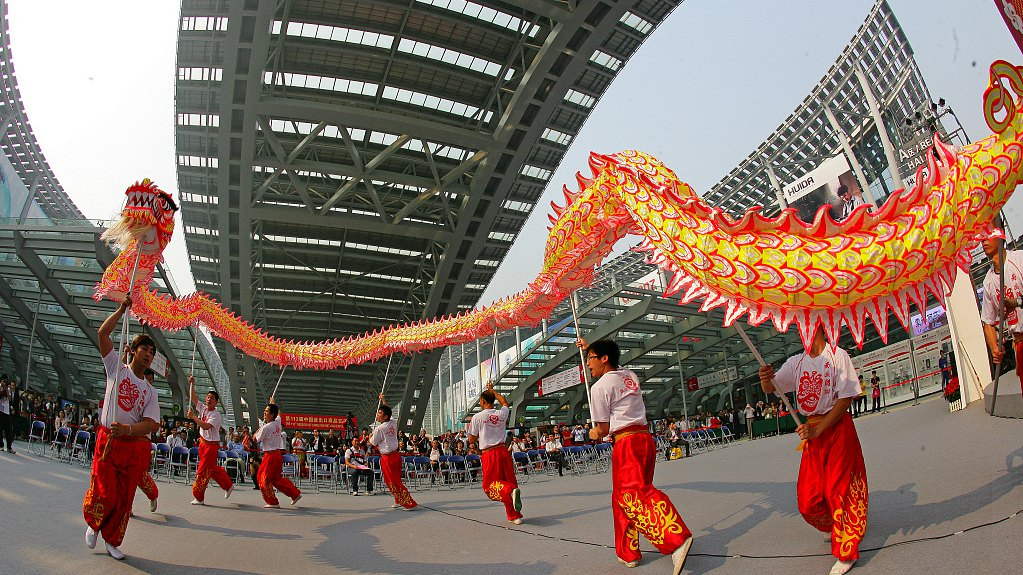
Culture China
21:04, 04-Mar-2019
Chinese lion dance tour receives widespread acclaim in India
CGTN

The Guangzhou Workers' Lion Dance Society recently wrapped up its four-day tour in India. The traditional lion dance performance, also known as "Awakened Lion" or "Southern Lion," is also part of China's National Intangible Cultural Heritage List, and won over many fans in India during its tour.
The lion dance premiered at the National Center of Performing Arts in Mumbai on February 28, alongside traditional Bollywood songs and dances. Chinese traditional instruments and Bollywood music have won applause from the audience.
"This is the first time I have seen the lion dance," Priya Pandey, an Indian viewer told Xinhua reporters after the show. "The cooperation, passion, and strength of the Chinese performers are very impressive."
Zhao Weibin, president and chief coach of Guangzhou Workers' Lion Dance Society, said that Chinese lion dance originated in the Han Dynasty (206 BC–220 AD) and has a history of nearly 2,000 years.
Guangdong lion dance is the southern branch of the Chinese lion dance series. It is a folk art and a tradition integrating dance, music, martial arts and techniques. It symbolizes good luck, prosperity, and progress. In 2006, Guangdong lion dance or "Xingshi" was selected into the first batch of National Intangible Cultural Heritage List.
"Lions are fierce, while Bollywood music and traditional Indian songs and dances are warm. The collaborated experience is unique and rare," said Zhao Weibin.
The show has also toured at Bollywood studios, local Chinese companies, and street malls, drawing crowds as well.
During the performance in Pune, Maharashtra's second largest city, resident Kumar said he had heard about the traditional Chinese dragon and lion dance before, but it is still an eye-opener to see such a performance at home, and he hopes more similar traditional Chinese cultural performances will come to India in the future.
Tang Guocai, Consul General of the People's Republic of China in Mumbai, said that with the first meeting of the China-India high-level people-to-people exchanges mechanism held at the end of last year, people-to-people exchanges between the two countries are setting off a new upsurge.
The dance is deeply loved by the Chinese people. The successful tour of lion dance in India fully demonstrates the unique charm of cultural harmony and integration, he added.
Kishor Jawade, General Secretary of Musicians' Federation of India, CEO of India-China Film Society, and General Secretary of India-China Culture Exchange Association, said that art has the power to transcend national boundaries, and the popularity of Chinese lion dance among the Indian people once again proves this truth.
(Head Image: Members of Guangzhou Workers' Lion Dance Society performed the dragon and lion dance at the 113th China Import and Export Fair [Canton Fair] on April 15, 2013. /VCG Photo)

SITEMAP
Copyright © 2018 CGTN. Beijing ICP prepared NO.16065310-3
Copyright © 2018 CGTN. Beijing ICP prepared NO.16065310-3